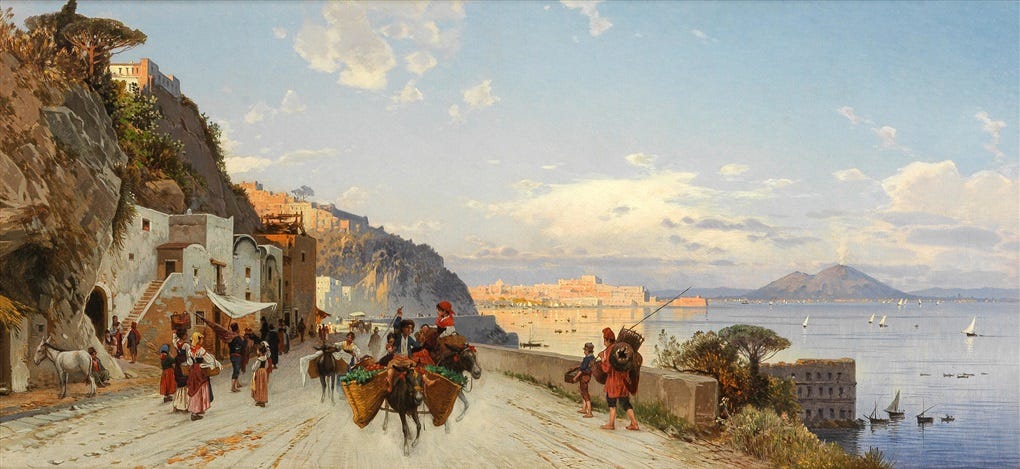I just uploaded a new paper to SSRN on the topic of Justice and fallen man in the classical natural law tradition. It’s a chapter for a volume on conservative perspectives on justice, being put together by the excellent Custodes Institute. My friend Adrian Vermeule will also feature. In case you missed it, his paper is also available on SSRN, and is called “Universalism and Nationalism: Thesis and Hypothesis.”
Here is an excerpt from the introduction:
One of the hallmarks of the great sweep of classical political and legal thought is its commitment to affirming and holding the following propositions in productive tension: man is a rational, social, animal that can only truly live well as the kind of creature he is within a well-ordered political community; but man is also a fallen creature, wounded by sin, who is prone to act in ways contrary to his own rational nature, by preferring his own passions and selfish desires over what is genuinely good for him and his community.
The marriage of Christian political theology and classical political philosophy, exemplified most powerfully in the work of St Thomas Aquinas, provide us with an unrivalled account of how to reconcile these propositions. Classical natural law thought offers answers to questions about the relationship between man’s imperfect nature and the possibility of securing justice and the common good, rooted in several moral-political axioms. These include the propositions that political authority is natural and the source of a great many human goods, that man is capable of a good deal of perfection in a just and well-ordered polity, that justice is not an aspirational ideal but a duty incumbent on both citizens and rulers, that the wounds of sin mean that law is required to suppress social evils and promote the virtues, that perfect happiness is beyond the ability of politics to secure, and that political authority is subordinate to man’s ultimate end and source of happiness in God. Classical natural law thought, therefore, is optimistic about the capacity of man through politics, even in his fallen state, to strive toward great human goods like order, peace, rights, and virtuous living in community. In a word – to secure justice. But because man has a greater destiny than life in the polis, classical natural law thought firmly closes the door to unreasonable evils linked to state worship and totalitarianism, to tyranny of all forms whether public or private, and to uncritical conventionalism or reliance on inherited customs and traditions.
This essay provides an introductory account of some of these axioms. Insofar as “conservative” political philosophy is concerned with conserving ways of life and modes of thought precisely because they are reasonable, true, and therefore linked to a picture of genuine human happiness, I suggest conservative politics will find its surest home within the classical natural law tradition.
And the conclusion:
The problem with doctrines like Marxism is not their view that men should subject existing social structures to searching critique for their reasonableness and justice, or the idea that men can proactively seek to readjust social, economic, political life so that it is better ordered toward temporal goods like abundance, security, and peace. Marxists share with the classical philosophers a vision for political life that presumes men can and should be shaped through law and education to be more concerned with justice and solidarity for their fellows.
What they are to be faulted for is the great source of their moral and intellectual failure: that their understanding of man's nature and what makes him happy and flourish in community, his place in the Universe and especially his relationship with God, and the reality of the natural law, are faulty to the core.
Political liberals are not wrong in being concerned with abuse of political power and with tyranny or totalitarianism. They are not wrong when they worry about social conflict and discord. They are wrong because they unreasonably restrict public deliberation and public action on those matters where it is most important to be correct, including about what helps promote human and communal flourishing and what is destructive of it. Their vision of political life is also ultimately in tension with the urge of human beings to live according to a picture of life in the polis they think is genuinely true and good.
The classical natural law tradition provides an intellectual account of fallen man within political life that is built upon and responsive to a full and nuanced picture of the type of rational social animals we are. It balances due concern about human fallibility and its proneness to sin with optimism about the ability of politics to secure justice and a measure of imperfect beatitude in this life. It rejects the view that man’s highest goal is political life and the view that politics should keep its aspirations narrow and away from contested views of the good life. Its aspirations for politics are therefore neither unlimited or totalizing, cramped or pessimistic; rather they are well fitted for the kind of creatures we were made to be. If conservative thinkers and politicians wish to secure the true flourishing of their political communities, they would be well advised to return to the core precepts of the classical natural law tradition.
The paper is in its early days, so I welcome any and all comments. I particularly welcome correction because I am aware that, as a mere constitutional lawyer, much of the material in the paper is strictly speaking well above my pay grade.






One tiny point. I think the forthcoming volume in which this paper will appear is called "Justice: Conservative Meditations", not (as stated in the draft) "Justice: Conservative Mediations".